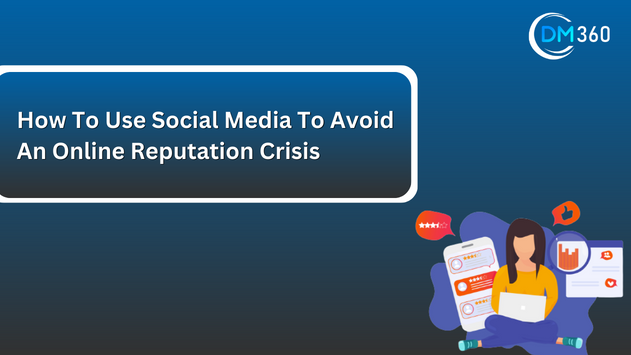In the modern world, where information is disseminated through the internet, social media is essential in constructing people’s and companies’ images. A damaging comment or slip on social media could result in a recognition disaster, leading to much harm done to one’s private or employer brand. Therefore, it becomes imperative to rent strategic methods to control and preserve a fine online reputation to reduce the hazards from such crises.
Table of Contents
Toggle
Social Media Tips To Avoid Online Reputation Crisis
Here we will talk about the proactive techniques that men and women and companies can undertake to leverage social media as an effective device for keeping off online recognition crises. Read on:
- Monitor Social Media Channels Closely
The first form of moderation in averting an online popularity disaster is thus to maintain constant supervision of the social media accounts. Employ the use of monitoring equipment in order to capture and establish signals on the mentions ,comments and posts in the social media that are in relation to your name, brand or business. Address any bad remarks/concerns immediately, to show that you are active and have the commitment to address issues. Monitoring is helpful in that it allows you to identify realistic issues before they become major ones, so that you can control them on the spot
2. Establish a Strong Online Presence
Since maintenance of strong and wonderful perception is the most effective approach for combating recognition crises, the proactive response would be to work on constructing the best online presence. Develop and maintain legal copies of social media accounts in the platforms that work for the enterprise/brand. Deliver great and valuable content on a regular basis, engage with your audience and demonstrate your authority. When you are already establishing authentic image or the online persona, which reflects the true nature of a professional and has high ethical standards, then you are in a better position to defend your image from anyone who tries to bring a tarnishing image about you.
3. Craft and Stick to a Clear Brand Message
It is necessary to keep the consistent company message across all layers of media structures. This message has to embody your values, mission and average image. Here this means that when your target audience receives a consistent coherent message, they are least likely to be changed by statistical manipulation or bad press. Another benefit of having a clean manufacturer image is that it assists in keeping focused on your message, and any avoidable distraction will not affect or cause controversy that can come with mixes signs.
4. Engage Actively and Authentically
Just like building a fantastic reputation in the physical sphere, it is vital to interact with your intended market continually. Replied promptly on the comment section, on the question, or on any message whether it is a very nice one or a not so good one. Be polite and businesslike in your responses and always assure your audience that you are concerned with their stress and their views. Engagement builds the belief and keeps the consumers loyal; it is therefore unlikely for the negative sentiments to escalate into a crisis.
5. Educate and Inform Your Audience
Avoiding a popularity disaster entails educating your target market in a natural way about your values, practices, and the quality of your merchandise or Social media marketing services. Use the content sharing feature to post some relevant articles or other informative materials, tell about the particular cases or success stories related to the position. If your target market is knowledgeable, then chances of getting them to do something based on fale information is remote. Truth and free discussion can act as a shield against reputation hatred.
6. Address Negative Feedback Professionally
Negative remarks are inevitable. However, how you take care of it can make a massive distinction in heading a recognition crisis. Instead of converting or editing awful comments on your wall, respond to them civilly and sincerely. Be polite and agree with them that there is an issue, and then you have a solution to it. Ask them to continue the conversation personally. Accepting criticisms shows that you are also committed to the purchaser’s pride, and the dissatisfied consumer may become a company evangelist.
7. Implement Crisis Communication Protocols
A recognized disaster can still happen even with highly implemented great prevention measures. First, it is crucial to have a well-defined disaster conversation sketch. This sketch should address the roles and responsibilities, identifying the key communicators, and the communication exchange. Expeditious and apparent verbal communication during a disaster is instrumental in effectively managing a scenario, minimize confusion, and prevent a chain of wrong information.
8. Stay Informed About Trends and Developments
Social media traits and algorithms are continuously evolving. Staying knowledgeable about these modifications is vital for adapting your techniques and retaining an effective online reputation. Regularly evaluate your social media techniques and alter them to align with cutting-edge, first-class practices. Being proactive in staying updated ensures that your online presence stays applicable and is tremendous in stopping viable recognition crises.
9. Collaborate With Influencers and Advocates
Influencers and company advocates constitute some of the people who can be useful in strengthening your online presence. These humans can guarantee that your brand is legitimate; they will provide good feedback and balance any vicious ones. It can boost weight with your viewers, assisting in building positive beliefs that function as a safeguard against possible recognition crises.
10. Employee Advocacy
Here it is a good idea to encourage your personnel to advocate for your company by joining social networks. The two can exchange incredible stories, inside information, and valuable material. This not only humanizes your manufacturer but, also generates a circle of company supporters who can intervene to protect your recognition in the course of a crisis.
See also Social Media Marketing Company in Chicago: Know The Facts About SMM
11. Consistent and Authentic Brand Messaging
It’s necessary to have a constant and proper message of the company across all the social media systems. When consumers of the messages and visuals provided in the usual flow get a similar message and visuals that bear your imprimatur, brand influence is asserting itself. Do not use statements or content material that may look like they are in conflict or may be taken as unreliable.
12. Proactive Crisis Management
As it seems, regulation involving doable troubles must be proactive. Min-situating the frequency of the discursive formation correlated to your brand: install social media surveillance. This allows you to determine what is negative or potentially manageable issues that would allow you to prevent them from worsening. This way, such remarks or evaluations do not remain unaddressed while at the same time, they do not offend the consumer; instead, they prove your commitment to meeting their needs.
13. Educational Content and Thought Leadership
Make yourself or the manufacturer you are sponsoring be seen as a thinking chief by posting rare instructional material linked to your line of business. This no longer merely highlights your competency to succeed in the position but also enhances your reliability. It is in such situations/ when faced with a realistic crisis, a firm and strong recognition based on confidence and information can help one to mitigate the effects.
14. Social Listening and Feedback Incorporation
To establish active listening from your target consumers, ensure to capture their words and confine their suggestions whenever possible. This now not solely implies that you value their opinions but also facilitates in preventing workable problems. Customers appreciate manufacturers that listen and adapt chiefly based on customers’ requirements.
Summing Up
In a time when facts spread and opinions are formed in seconds, the effective administration of your online reputation is a key component of personal branding and enterprise success.
Some of the ways through which the hazards connected to recognition damage can be managed effectively are communicating consistently through social media, developing a strong online presence, keeping the message of the manufacturer clear, building the ability to entice the audience authentically, and responding to disasters as they occur.
Applying the strength of social media strategically and proactively will now help you avoid preventable crises and enhance the aesthetics of your brand, both in the eyes of the law and in the internet world.
FAQs
1. Why is social media important for maintaining an online reputation?
Social media plays a crucial role in shaping public perception and can significantly impact personal and corporate brands. It helps disseminate information quickly and widely, making it essential for reputation management.
2. How can I monitor my social media channels effectively?
Use social media monitoring tools to track mentions, comments, and posts related to your brand or name. Address negative feedback promptly to show engagement and commitment to resolving issues.
3. What steps can I take to establish a strong online presence?
Create and maintain official social media accounts, regularly post valuable content, engage with your audience, and demonstrate your expertise and professionalism to build a positive online image.
4. Why is it important to have a consistent brand message?
A consistent brand message helps build trust and credibility with your audience. It ensures that your values, mission, and overall image are clear, reducing the impact of negative information.






